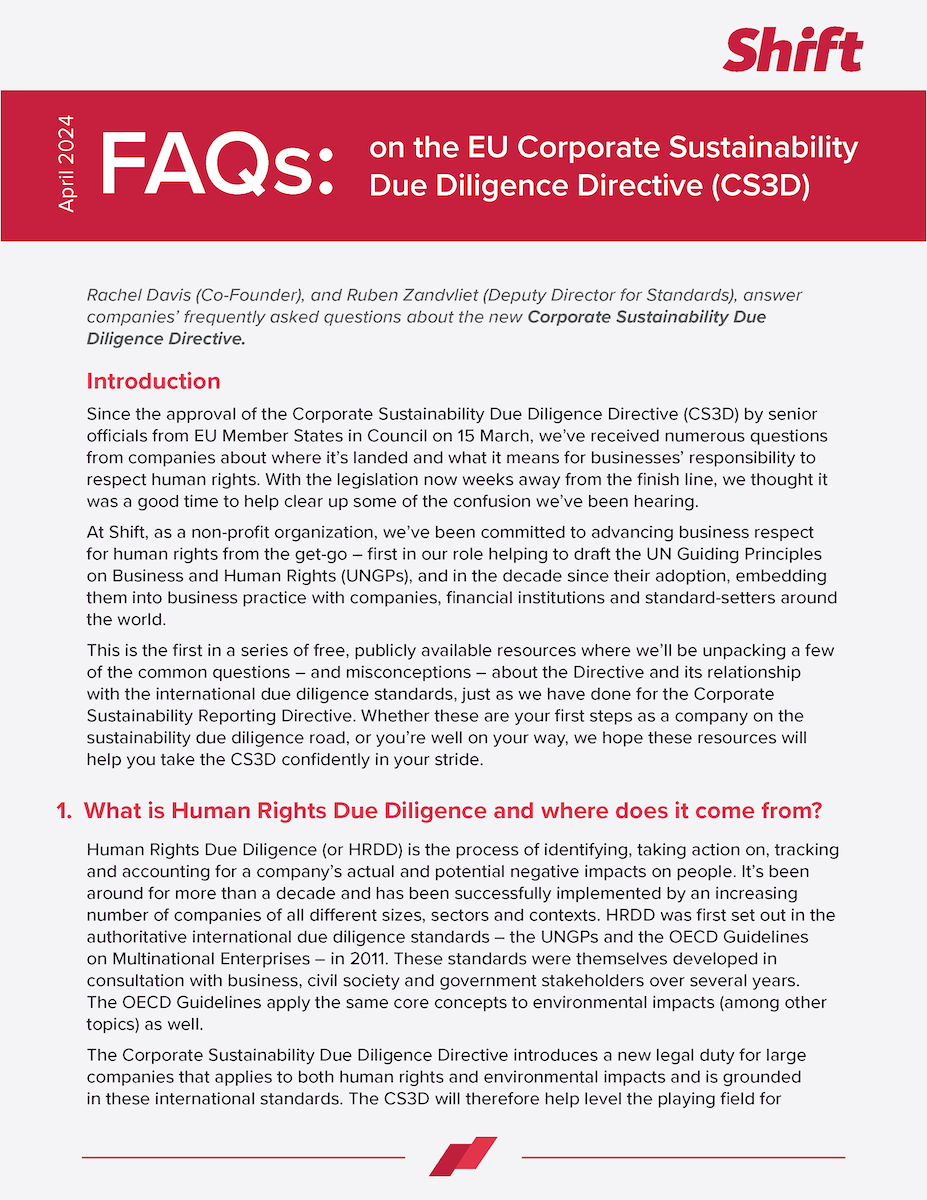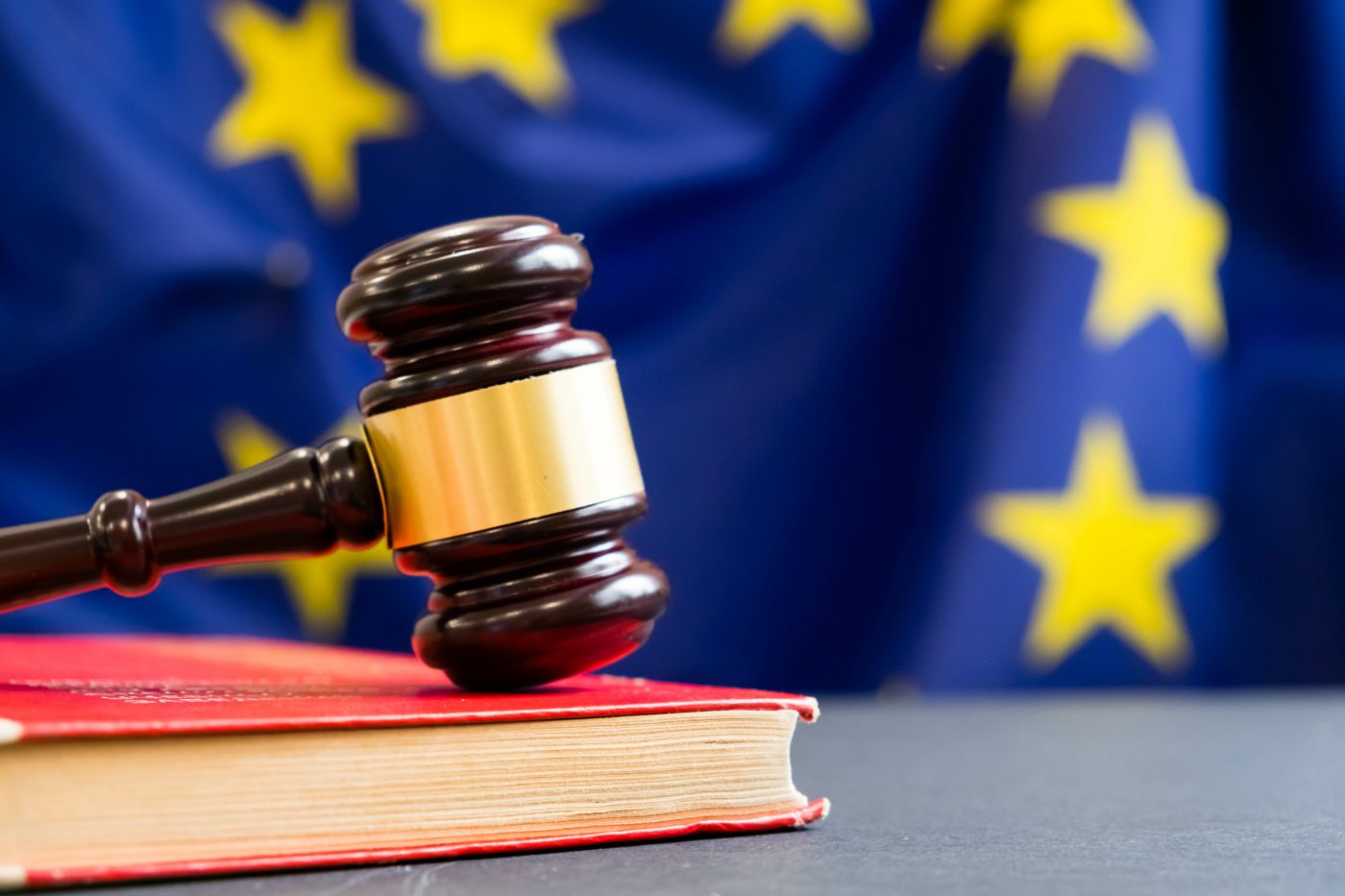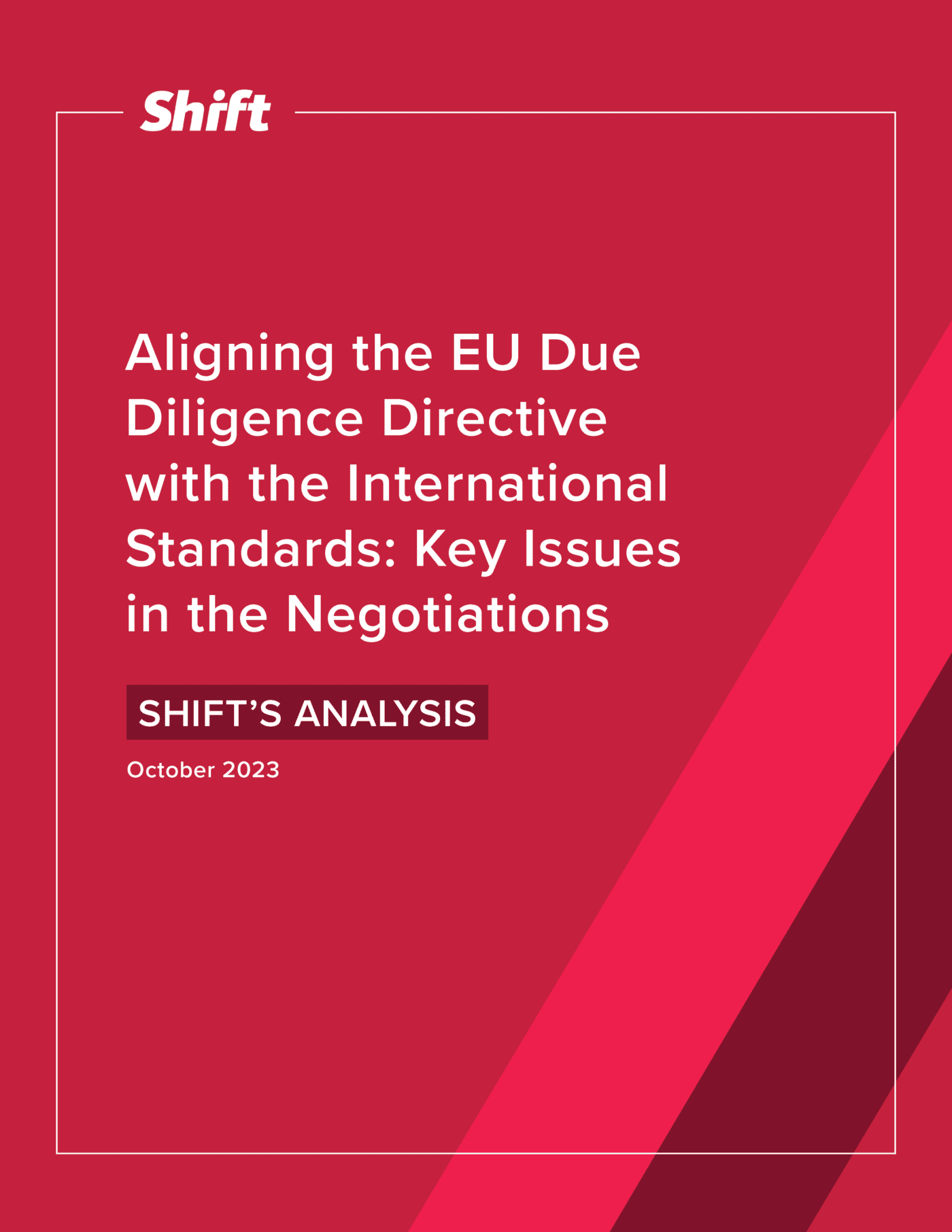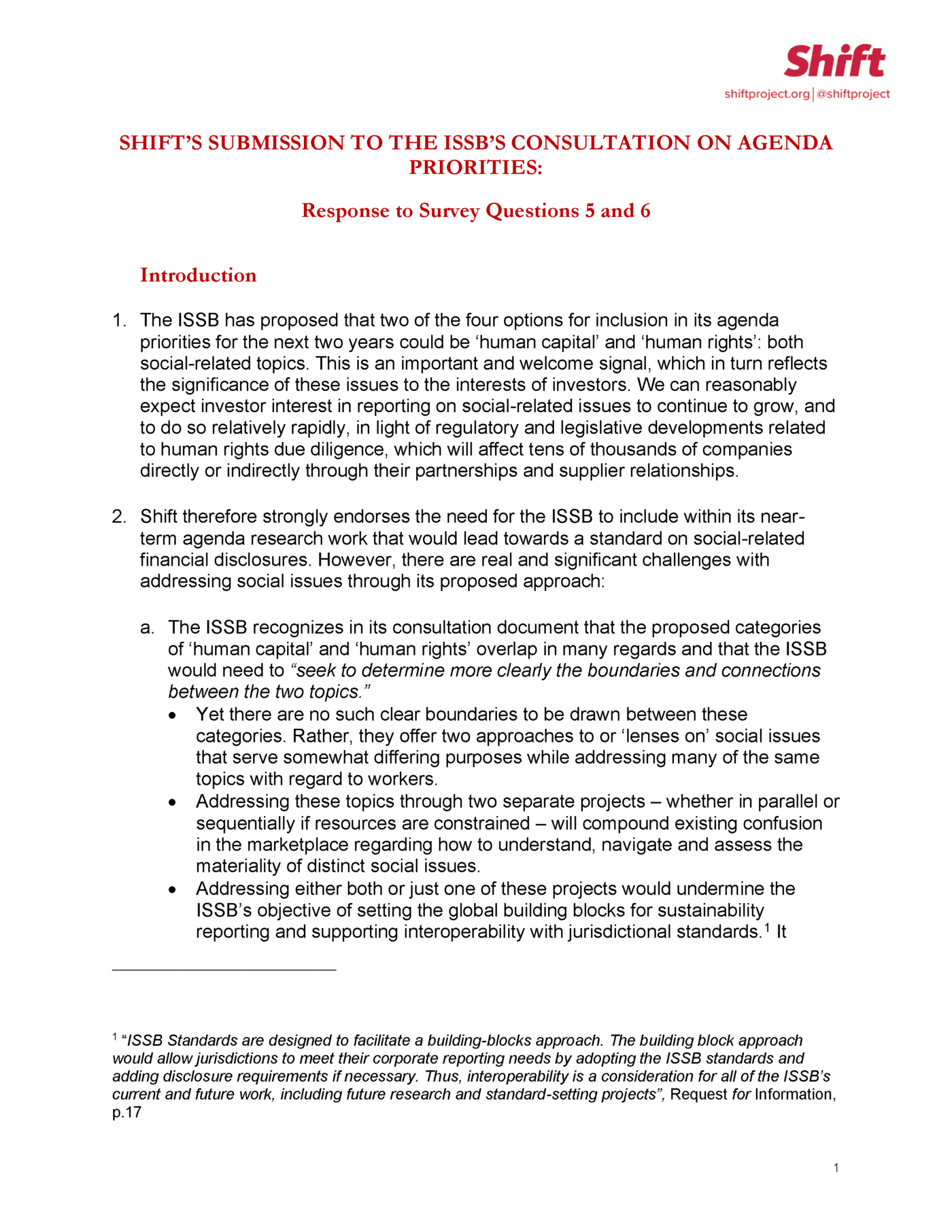In this resource, Rachel Davis (Co-Founder), and Ruben Zandvliet (Deputy Director for Standards), answer companies’ frequently asked questions about the new Corporate Sustainability Due Diligence Directive.
Since the approval of the Corporate Sustainability Due Diligence Directive (CS3D) by senior officials from EU Member States in Council on 15 March, we’ve received numerous questions from companies about where it’s landed and what it means for businesses’ responsibility to respect human rights. With the legislation now weeks away from the finish line, we thought it was a good time to help clear up some of the confusion we’ve been hearing.
This is the first in a series of free, publicly available resources where we’ll be unpacking a few of the common questions – and misconceptions – about the Directive and its relationship with the international due diligence standards, just as we have done for the Corporate Sustainability Reporting Directive. This includes:
- What is Human Rights Due Diligence and where does it come from?
- Is the CS3D some new kind of ‘European due diligence’?
- Is the CS3D aligned with the international due diligence standards on business and human rights?
- What is the role of administrative supervision in the enforcement of the CS3D?
- What does civil liability in the CS3D apply to? What does this mean for companies?
- What about Member States – what are they required to do?
- As a company, what can I do now?
- What about impacts in downstream business relationships – are these still covered by legislation?
Whether these are your first steps as a company on the sustainability due diligence road, or you’re well on your way, we hope these resources will help you take the CS3D confidently in your stride.
As a non-profit organization, Shift has been committed to advancing business respect for human rights from the get-go – first in our role helping to draft the UN Guiding Principles on Business and Human Rights (UNGPs), and in the decade since their adoption, embedding them into business practice with companies, financial institutions, civil society organizations and standard-setters around the world.




